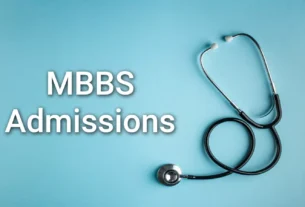The NEET PG Counselling 2024 process is a crucial phase in the journey of aspiring postgraduate medical students in India. It serves as the bridge between examination results and the allocation of seats in various medical colleges across the country. Conducted by the Medical Counselling Committee (MCC), this process involves multiple stakeholders, including students, medical institutions, and regulatory bodies. The significance of this counselling lies not only in facilitating admission but also in ensuring equitable access to medical education for all candidates.
Central to the NEET PG Counselling framework is the allocation of seats, which is influenced by various categories, including the PWD (Persons with Disabilities) seats. These seats are specifically designated to provide opportunities for differently-abled individuals, reflecting the commitment to inclusivity in medical education. The operational rules governing the allotment of these seats dictate that they must be converted to general categories if not filled, a point of contention that has led to challenges from students claiming equal access to educational resources.
The NEET PG Counselling process also encompasses a series of rounds where students can either accept or reject the seats offered to them based on their merit and preferences. Each round is critical as students aim to secure a place in their desired specialties while adhering to the prescribed regulations. The interplay between legislative guidelines and the needs of the candidates introduces a complex dynamic that the MCC must navigate carefully. This involves continuous engagement with various stakeholders, including medical colleges, to ensure the smooth operation of counselling while remaining sensitive to the concerns raised regarding PWD seat conversions and their implications for general category admissions.
Recent Challenges Faced by Students Regarding PWD Seat Conversion
In recent months, the issue of converting Persons with Disabilities (PWD) seats into general category seats during the NEET PG Counselling process has ignited significant debate among students. Many candidates have expressed their concerns regarding the fairness and transparency of this policy, emphasizing how it directly affects their opportunities for securing admissions to postgraduate medical courses. The challenges faced by these students stem not only from the specific implications of such conversions but also from the broader context of equity within the educational framework.
Students argue that the conversion of PWD seats to general category seats diminishes their chances of gaining access to vital educational resources that enable them to pursue their career goals. One particular testimony highlighted the frustration of a student who felt that their aspirations were compromised due to a lack of proper representation for PWD candidates. This sentiment is echoed by many others who are vocalizing their discontent through various platforms, urging authorities to reconsider the existing policies and regulations governing seat allocations.
Moreover, the ramifications of these seat conversions extend beyond individual experiences; they raise questions about the allocation of opportunities in a highly competitive environment. As the medical field becomes increasingly overcrowded, the importance of equitable access to educational advantages cannot be overstated. For many students with disabilities, the PWD quota represents not only a chance for education but also a critical pathway to professional fulfillment and societal contribution.
Students challenging the conversion policies are calling for a thorough review and reassessment of the criteria that govern PWD seat allocation. They argue that a more equitable approach would take into account the unique challenges faced by disabled students, thereby allowing them to fully engage in the medical education process. The outcome of this ongoing debate will undoubtedly influence future NEET PG counselling practices, with potential long-term effects on the medical community as a whole.
High Court’s Involvement and Queries Directed to MCC : NEET PG Counselling 2024
The involvement of the High Court in the NEET PG counselling process has become a pivotal aspect of the ongoing legal discourse surrounding the conversion of PWD (Persons with Disabilities) seats to the general category. This intervention underscores the importance of judicial oversight in matters related to educational admissions and the associated policies governing them. The High Court’s role often serves as a check on the practices of bodies like the Medical Counseling Committee (MCC), ensuring that the principles of fairness and equity are upheld in the counselling and seat allocation processes.
In recent proceedings, the High Court directed pertinent questions towards the MCC concerning the criteria and justification behind the seat conversion process. These queries aim to clarify the legal framework guiding the MCC’s operations, prompting the committee to justify its decisions regarding PWD seat allocations. The court has sought transparency in the rationale provided for such conversions, questioning whether they align with the provisions stipulated under existing laws protecting the rights of disabled individuals in education.
Judicial oversight in educational admissions is essential, as it not only safeguards the interests of marginalized groups but also aids in promoting inclusivity within the medical education system. The outcomes of these court hearings have the potential to significantly influence the policies implemented by the MCC in the future. If the High Court’s scrutiny results in a re-evaluation of the seat allocation framework, it may set a precedent for how similar cases are handled, thereby reinforcing the sanctity of equitable access to educational opportunities.

As the court proceedings continue, the implications for both current and future NEET PG counselling practices remain to be seen, emphasizing the critical role of judicial involvement in shaping educational policies. This ongoing scrutiny serves as a reminder that the intersection of law and education is vital in fostering a more equitable system for all aspiring medical professionals.
Implications of the Challenge on Future Counselling Policies
The recent challenge by students concerning the conversion of PWD (Persons with Disabilities) seats to the general category has stirred significant discourse around the future of NEET PG counselling policies. As the High Court questions the Medical Counselling Committee (MCC) on this matter, potential reforms are emerging that could reshape the pre-existing frameworks. It is vital to consider how these developments might affect both PWD candidates and the broader student population.
One possible implication of this challenge is the refinement of guidelines governing the allocation of seats. The current ambiguity regarding the criteria for seat conversion may lead to a call for more structured rules that clearly delineate the parameters for PWD candidates and ensure that their rights are upheld without compromising opportunities for general category students. This could foster a more transparent admissions process, instilling greater confidence in all stakeholders.
Furthermore, the ramifications of this case could promote a necessary discourse on inclusivity within medical education. As the impact of this court inquiry reverberates, educational institutions may be encouraged to implement broader support mechanisms for PWD students. Such reforms could include increased accessibility in training programs, enhanced mentorship opportunities, and awareness campaigns aimed at fostering an inclusive educational environment.
Additionally, the challenge can highlight the importance of balancing the interests of both PWD candidates and their peers. Policymakers may be compelled to reassess the allocation procedure, ensuring that it adequately respects the rights of PWD applicants while maintaining equitable access for all. As a result, this incident could serve as a catalyst for more comprehensive policy reforms within NEET PG counselling, leading to a fairer and more just educational landscape.
In conclusion, the students’ challenge regarding PWD seat conversion will likely catalyze critical discussions and policy reforms that seek to balance inclusivity with fairness in medical education. The focus will be on establishing clear frameworks that foster both rights and responsibilities in this important sector.





